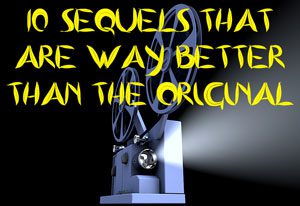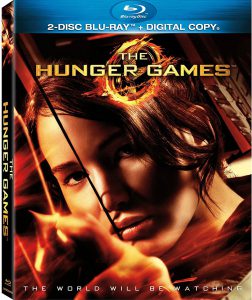How in the world does one explain the huge popularity of the “Twilight,” “Girl With the Dragon Tattoo” and “Hunger Games” book/film series? I mean, I can understand “Harry Potter,” and I’m a fan of those books and movies myself. But where “Potter” provides a lusciously realized and wondrous world, adorable characters and plenty of humor, I don’t see any of that in the three phenomena that have followed it.
As a film, “The Hunger Games” is a commendable piece of science fiction. It’s a more spread-out telling of “Surviving the Game”-meets-“The Running Man”-meets-“Logan’s Run” (this film is the first of three book adaptations). The filmmakers, working from Suzanne Collins’ young adult novel, explore a future smartly — and disturbingly — spun forward from today’s reality.
In a grand replacement for sports and “Survivor,” the 12 districts that unsuccessfully rebelled against the Panam government are required to send two randomly selected tributes, a teenage boy and girl, to the annual reality show where only one of the 24 can survive. Our hero, Katniss Everdeen (appealingly played by Jennifer Lawrence) comes from the achingly poor District 12; she’s a master of basic survival skills like bow hunting.
She has a connection with both hunky longtime friend Gale (Liam Hemsworth) and the quiet guy who once snuck her a piece of bread in the rain, Peeta (Josh Hutcherson). The romances are a bit bland and one-note, but they seemed to be the most popular part at the screening I attended, judging by the teenage-girl giggling.
Meanwhile, in the Capitol, government employees live lives of luxury, and the makers of the TV show have access to incredible technology. The sky above the massive forest where the games take place occasionally lights up with the face of a just-deceased tribute, giving the survivors an update on how many are left for them to outwit, outlast or — you know — kill in cold blood.
As a fan of science fiction who now finds myself living in 2012 (a time portrayed as the distant future in so many of classic novels) I have to admit that I’m disappointed in how things are going.
Yes, “The Hunger Games” is fiction and not a strict mirror of reality, but it hits painfully close to home. I wonder if it wouldn’t have been more enjoyable as a piece of entertainment in the 1970s, when so many of its dystopian forbearers hit theaters. Coming out at a time when the world (or at least human civilization as we know it) seems to be in the process of falling apart, I found “The Hunger Games” hard to enjoy as a fun blockbuster romp.
I was braced for the doom and gloom. A fan of the book described the plot to me — randomly chosen kids kill other randomly chosen kids on a wildly popular future TV show — and I could only react with: “Ugh. I can’t imagine a less-appealing premise.”

I acknowledge that the film’s design is impressive in a slick blockbustery way, from the colorful pageantry of the contestants’ introductions (Katniss gets decked out in a fiery red dress) to the natural beauty of the forest. And we share a mild thrill with Katniss as she gradually becomes better at surviving the game and possibly (this will be explored in the sequels, no doubt) doing something today’s independent-minded voters struggle with: Changing things for the better when the business-as-usual Democrats/Republicans hold almost all the power and are primarily concerned with keeping the government big and powerful.
I guess “The Hunger Games” is a little less bleak than “Girl With the Dragon Tattoo.” And it seems to be better than “Twilight” (I’m judging only by the unappealing trailers, admittedly, but I think I have a well-honed sense of my own tastes). But man, give me “Harry Potter” instead. Or “Star Wars.” Or something where I have a reason to smile while I’m watching it. What happened to moviegoers wanting to escape reality? What happened to dour sci-fi epics being the stuff of cult followings? Blockbusters — and the massive fan bases that make them into blockbusters — have moved in a strange direction.

